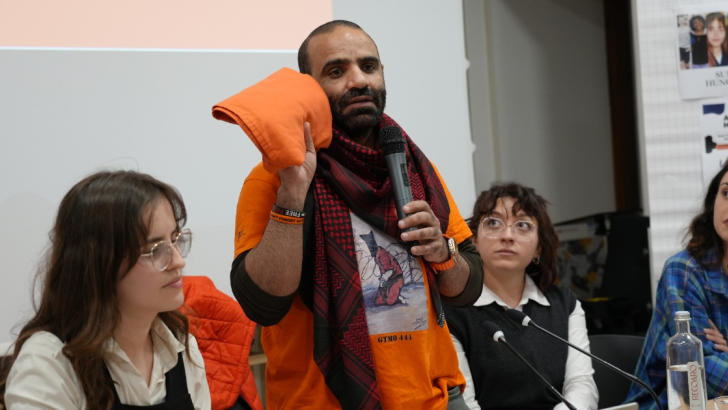Music, some help for a better sleeping

At the start of the school year, the holidays end and everyday life begins again. Along with the demands of work and study, stress levels can rise, making it more difficult to sleep. Actually, sleeping problems are very common in Italy and they directly affect quality of life. Last data from the Superior Health Institute in 2020 reported that one person over seven sleep bad, and three over 10 sleep less than 6 hours per night. At least 7 hours of sleep per night on average are recommended instead.
Whether specific therapies exist for serious insomnia issues and other disturbances, for lighter ones, music could be helpful. There are no adverse effects, no medical prescriptions and it could be more useful than similar solutions, such as listening an audiobook. In the last years, various research groups tried to figure out why music works, and which pieces incite sleeping. However, several questions still remain.
When sleeping is a problem
Since the first days of lack of sleep, fatigue emerges, as well as levels of stress and emotional disturbs increases. The problem can be shaped differently, when it persists over time, such as insomnia, narcolepsies, which in turn favour the outset of hypertension, cardiovascular disturbs and other diseases. As for the occasional insomnia, various drugs are commercialized without medical prescriptions. Instead, hypnotical and antidepressive therapies must be prescribed by a physician, potentially inducing adverse effects, such as sleepiness in the daytime and weight gain.
As much as these complications can be limited, many psychologists and neuroscientists are studying alternative approaches to combine therapies or, in certain cases, replace them. In the meanwhile, numerous people are already using music to fall asleep. At least, this is what emerges from the few available data.
Which music?
Since childhood we have accustomed to listening to lullabies before going to sleep. A quick search for the word ‘sleep’ on Spotify reveals dozens of playlists designed to help you sleep. When you open one of these, you’ll notice that the pieces are similar and feature a simple, repetitive melody that might remind you of a lullaby. A few examples are White clouds by Einaudi, River flows in you by Yiruma or the Beethoven’s Moonlight sonata for pianoforte. Generally, they are characterised by a medium-slow rhythm, minor tonalities and legato phrasing. They often do not involve vocal accompaniment and originate from the classical repertoire. Alternatively, they consist of famous rearranged pieces that follow the aforementioned features.
This type of music helps you fall asleep because it stimulates the relaxation phase, that precedes sleep and promotes direct physiological changes in your body. Breathing tends to become more regular, the heart rate slows down, blood pressure drops along with stress hormone levels in the blood, and eventually we fall asleep. Conversely, rhythmic and high-pitched songs stimulate excitement and movement, such as those designed for sports or dancing.
Habit matters too
It’s not just the perfect song that helps us fall asleep, but also a matter of taste and behaviour. “It has been shown that listening to music that doesn’t match your preferences can be frustrating and even inhibit sleep,” says Emery Schubert, professor of Art, Design and Architecture at the University of New South Wales in Sydney, Australia. In 2020, together with his colleague Gaelen Thomas Dickson, he compared the results of several previous studies to evaluate the effect of music, as compared to audiobooks or hypnotic therapies, such as diazepam. Within one to two weeks, music was more effective than other approaches for people with moderate sleep disorders, that do not interfere with daily life. Furthermore, its effect increased over time.
“Our research suggests that it has an immediate impact, even if the effects may not be visible in the first few days,” explains Schubert. However, if the exercise is repeated for weeks, the association between listening and sleeping is reinforced and its effectiveness increases. The researcher continues: “Listening to music to fall asleep creates anticipation and allows you to establish a new sleep routine.”
The remaining doubts
What makes listening to music more effective than words, such as in an audiobook, remains a mystery. “This study result surprised us too. That’s why we need to conduct further research and compare the effect of music habit with other factors,” comments Schubert. “I believe that one of the most important aspects to understand now is when a person should switch from a self-prescribed remedy, such as music, to a more conventional therapeutic solution.” In recent years, numerous studies have demonstrated the effectiveness of music in facilitating sleep for people of all ages, even in the presence of conditions such as cancer or schizophrenia.
However, sometimes this is not enough. If you cannot fall asleep even with the perfect playlist and the power of habit, it becomes necessary to thoroughly evaluate the causes of the disorder to take targeted action and, if necessary, consult a doctor. Lack of sleep can also be linked to genetic predispositions and medical conditions, as well as aspects of daily life. These include the lack of a daily routine, alcohol consumption and smoking, noise in the bedroom, or using computers or mobile phones before going to sleep. Therefore, it may be helpful to take direct action on modifiable factors, follow a specific therapy or try other remedies such as physical and breathing exercises, with or without music.









